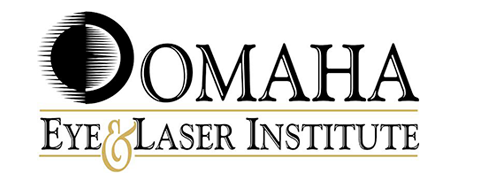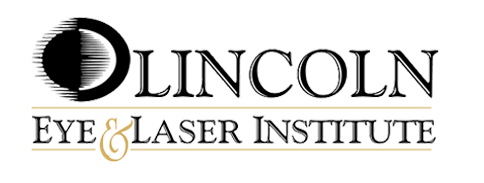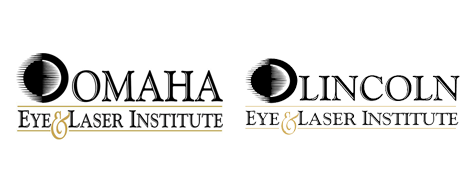Are you experiencing blurry or cloudy vision? Does it feel like your vision is gradually worsening?
These could be signs of having cataracts. Cataracts are one of the most common age-related eye conditions. While most people think of cataracts as something that only affects older patients, many people begin to develop cataracts as early as their 40s.
When you’re diagnosed with cataracts, though, you may not need treatment right away. You may not need treatment for years as cataracts develop very slowly.
When you do need treatment, the best and only way to remove your cataracts is through cataract surgery. Keep reading to learn more about cataracts and how to know when it’s time for cataract surgery!
What are Cataracts?

Cataracts form on the natural lens of the eye. They typically develop as a result of the natural aging process, as the proteins within your lens start to break down and form clumps that cloud your vision.
The older you get, the more likely you are to develop cataracts. Many people begin to develop cataracts in their 40s.
However, it can take many years for cataracts to develop to the point that they affect your vision.
What are the Common Symptoms of Cataracts?
You can go for years without having any cataract symptoms, even if you have cataracts. However, as they develop, they can cause many symptoms, including:
- Blurry, cloudy vision
- Halos and glare
- Poor night vision
- Increased light sensitivity
- Muted or yellowed vision
- Double vision
These can also be symptoms of other eye conditions, such as glaucoma, age-related macular degeneration, or diabetic retinopathy. If you are experiencing one or more of these symptoms, you should schedule an eye exam with your eye doctor at Omaha Eye & Laser Institute to receive an accurate diagnosis and treatment plan.
How are Cataracts Diagnosed?
Cataracts can be diagnosed through routine comprehensive eye exams with your ophthalmologist. If you are over the age of 40, it is recommended you undergo regular eye exams at least once every two years.
This can help detect age-related eye conditions early, including cataracts. Your eye doctor may perform a variety of tests during your exam, including a visual acuity test and a slit-lamp examination to detect signs of cataracts.
They will also ask about your symptoms, medical history, and family history. If you are diagnosed with cataracts but aren’t experiencing severe visual impairment, your eye doctor may recommend wearing glasses or contacts to improve your vision temporarily.
They’ll continue to monitor the development of your cataracts until they start to affect your ability to do things like driving, reading, or socializing. At that point, cataract surgery is the only treatment that can restore your vision.
How Does Cataract Surgery Improve Vision?

Cataract surgery involves removing the cataract-affected natural lens of the eye and replacing it with a clear intraocular lens, or IOL. Premium IOLs can improve your vision even further.
At your cataract surgery consultation, your eye doctor can help you choose the best IOL for your procedure based on your lifestyle and visual goals. Along with the standard monofocal IOL, Omaha Eye & Laser Institute offers premium IOLs, including toric IOLs, the PanOptix trifocal IOL, and the Light Adjustable Lens.
With premium IOLs, you have the chance to reduce or even eliminate your reliance on glasses after cataract surgery so that you can enjoy all of your favorite activities with crystal clear eyesight, minus the hassle of visual aids. If your cataracts are advanced, cataract surgery can give you your vision and your life back.
Even if you do not choose a premium IOL, feeling confident in your ability to drive, read, and take care of yourself without cataracts reducing your vision can give you freedom and make every moment that much clearer, crisper, and vibrant.
When Should I Get Cataract Surgery?
Because cataracts can take a long time to cause any visual problems, eye doctors generally recommend that you only have cataract surgery as soon as your cataracts begin to affect your quality of life. This means it’s up to you to determine when your cataracts are making it harder to do your daily tasks.
It can be “too soon” to have cataract surgery if you don’t have any real symptoms yet. However, you shouldn’t wait longer than you need to.
A lot of patients with cataracts wait too long to have surgery when they could have improved their quality of life a lot sooner. To make sure you don’t have any cataract surgery regrets, be honest with yourself and your eye doctor about your visual problems.

If cataracts affect your vision to the point where you cannot complete normal activities and are decreasing your quality of life, it is time to consider cataract surgery. Once you’ve healed from the procedure, you can return to doing all the things you love without worrying about cataracts.
Whether it’s setting out on an international cruise, playing a game of tennis, or curling up inside with a good book, clear vision can enhance every moment. The different IOLs offered at Omaha Eye & Laser Institute allow you to achieve the vision you want after cataract surgery, no matter your lifestyle and vision goals.
Are you ready to find out whether it’s time to get cataract surgery and improve your vision? Schedule an appointment at Omaha Eye & Laser Institute in Omaha, NE, today!





